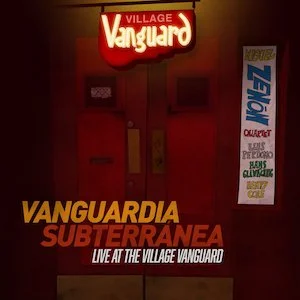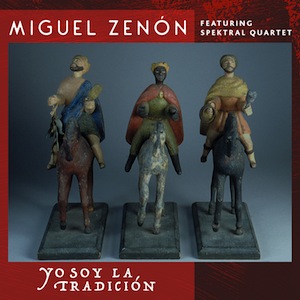Label: Miel Music, 2025
Personnel - Miguel Zénon: alto saxophone; Luis Perdomo: piano; Hans Glawischnig; bass; Henry Cole: drums.
Championing post-bop-infused Latin jazz like no one else, Puerto Rican saxophonist and composer Miguel Zénon reunites his long-standing quartet for a new album recorded live at New York’s Village Vanguard—an event marking the group’s 20th anniversary. Joined by Venezuelan pianist Luis Perdomo, Austrian bassist Hans Glawischnig, and Puerto Rican drummer Henry Cole, Zénon showcases a dazzling interplay of rhythmic intricacy and harmonic sophistication that keeps the storytelling at its peak.
The album opens in giddy delirium with “Abre Cuto Guiri Mambo”, whose skittering folk riffs, polyrhythm, and shifting meters lend it distinctly contemporary pulses. Zénon’s solos pour out in an unbroken stream of ideas, each phrase logically built yet bursting with invention, while Perdomo responds with sequences of meaningful, dynamically voiced chords. A closing 3/4 passage gives Cole space to branch out behind the kit.
“Vita”, written for Zénon’s grandmother, unfolds like a waltzing tango, highlighted by Glawischnig’s lyrical bass statement. By contrast, the complex “Dale La Vuelta” brims with frenetic rhythmic counterpoint and sharp impulsivity. “Coordenadas” is melodically fragmented yet conversational, and “Vanguardia Subterranea”—a tribute to the legendary venue Zénon calls a ‘sanctuary of music'—is both playful and riff-driven.
The quartet’s first-ever live album concludes with two salsa reinterpretations. Héctor Lavoe and Willie Colón’s “El Día de Mi Suerte” radiates bright, streetwise energy, full of color, rhythm, and unexpected meter changes. Meanwhile, José Luis Piloto’s “Perdóname” is reimagined with a muscular bass groove and a breathless piano solo bursting with chromatically shifting ostinatos.
Favorite Tracks:
01 - Abre Cuto Guiri Mambo ► 02 - El Dia De Mi Suerte ► 08 - Perdóname












